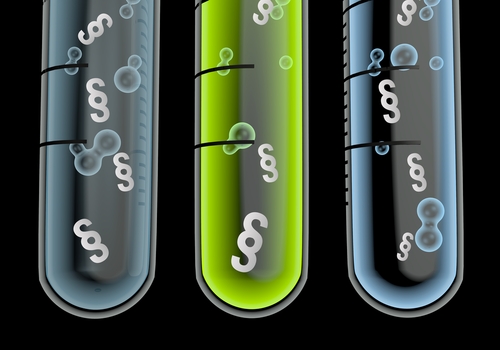MS BLOG: Sort Anecdotal Claims, Real Science Before Research Treatments
Written by |

Can we all agree that research studies are important and they are necessary to prove whether a concept works or it doesn’t? Even from the biggest failures, we can learn more.
We can also all agree that research has to be done via properly conducted studies to be accepted as valid, right?
And foremost, I know we certainly agree that the people who are participating as subjects in trials must be taken care of and assured that their participation will cause no harm.
Based on my brief list, I want to share my thoughts –
Without research studies, we make no advances in treatment. Without research studies we don’t stand a chance of finding a cure for MS. Research is only possible if people are willing to help and become research participants. There are lots of studies that can’t find enough people to engage with and ultimately we all are hurt by that. If you can, join a research study and help.
Research studies have to follow certain rules and protocols to produce valid data. The work of a researcher must be reproducible — in other words, others should be able to do the same work and get the same results. The requirement for being true research means it shares the truth in the findings.
Protection of the human subject is the most important thing, and here in the US everyone has that protection under the Common Rule, which helps shape the ethical treatment guidelines of anyone willing to put themselves into a research study. Before researchers can do things with humans, they must demonstrate that their ideas are safe — and usually this involves studies with mice if you are talking about MS research.
These really are three simple points commonly accepted by everyone, and yet in the world of multiple sclerosis (MS), they continue to be ones that people are willing to overlook when they are desperate for a cure.
All of this common knowledge can easily get chucked out the window when you have a chronic disease and are facing declining health with no options that meet these three points. So what do we do? We are tempted to toss all three of these guiding tenants out and forge ahead trying whatever the latest treatment suggestion might be —damn the studies, the evidence, and even the patient safety.
The MS community seems to be particularly susceptible to this thinking. It just takes a few anecdotal tales of people getting cures (or at least major relief), to send our members seeking access to unproven ideas and opening their checkbooks, or even taking out hefty loans to finance treatment.
There was this rush for treatment using CCSVI liberation therapy a few short years ago — Chronic Cerebrospinal Venous Insufficiency was based on the idea that a lack of blood flow to the brain caused MS. Even though there were no clinical trials, no evidence that could be reproduced, and no oversight for the protection of patients, people rushed to get the liberation treatment done because they heard other people had success and were ‘cured’ of their MS. The rush usually involved going to a foreign country and paying thousands of dollars to have the experimental procedure. Unfortunately, the CCSVI procedure did cause harm to some and even death for a few people, and it diverted millions of critical research dollars from other MS studies to quiet the crowd that demanded CCSVI be studied. There are still believers, but they are getting fewer and quieter. Now most people affected by MS understand the studies showed there is no evidence CCSVI is linked to multiple sclerosis[i].
Now that you know where I come from with the need for scientific studies, reproducible evidence and subject protection, you might also understand why I hesitate in endorsing the recent demand for quick access to hematopoietic stem cell therapy (HCST). I support the concept that HCST might unlock the cure for MS – I have said since my diagnosis in 2008 that stem cell therapy will unlock this disease — but I can’t ignore that we don’t have the oversight and evidence from more than a few studies. I read too many cases of people traveling to foreign countries, and even a few unauthorized places in the US, undergoing stem cell replacement and then coming home excited that they are cured, only to have the reality and past symptoms of their MS slowly return.
We only hear the enthusiastic words of those people who believe that HCST worked for them in the short term, and we rarely hear the words of disappointment from the majority for whom it has failed.
There are stem cell therapy clinical trials now being reported that 1) are qualified research studies 2) are seeking results that are reproducible and 3) protect the humans who are involved as test subjects. For now, the studies that meet these criteria are having a fairly high success rate of stopping disease progression, which is very encouraging — this is from both the HALTS[ii] trial in the US and an even higher rate in a similar trial in Canada[iii]. None of the researchers with these two studies claim to have found a ‘cure’ for MS.
Notably though, the Canadian trial had one death out of 24 people — which is an unacceptable mortality rate — and the US trial had a success rate of just under 80%. Having stem cell replacement therapy involves rebooting the immune system by essentially depleting every bit of it through harsh chemotherapy drugs, and then reintroducing the person’s own stem cells back into their body. It is not a procedure to be undertaken without understanding the full range of risks and it should not be available just because a person has enough money to travel and cover the costs.
The next time you read about personal stem cell therapy success stories, I hope you will stop and question if the person’s experience took place via a valid research study, and not just because they had the funds to cover costs. Ask if their results are reproducible with additional people; and if the person faced unnecessary and unprotected risk. A followup with the person six months and a year later to find out if they are still benefiting from their treatment would be very useful and informative. It’s important to know the entire story when we read the anecdotal stories. Part of knowing involves understanding the basics of good research.
[i] https://www.nationalmssociety.org/Research/Research-News-Progress/Research-News/CCSVI
[ii] https://www.msdiscovery.org/news/new_findings/16252-stem-cell-transplants-risky-effective
[iii] https://www.medscape.com/viewarticle/864625#vp_2
Editor’s Note: The opinions expressed in this blog article are not those of Multiple Sclerosis News Today, or its parent company, Bionews Services, and are intended to spark discussion about issues pertaining to Multiple Sclerosis. Multiple Sclerosis News Today is strictly a news and information website about the disease. It does not provide medical advice, diagnosis, or treatment. This content is not intended to be a substitute for professional medical advice, diagnosis, or treatment. Always seek the advice of your physician or other qualified health provider with any questions you may have regarding a medical condition. Never disregard professional medical advice or delay in seeking it because of something you have read on this website.



Cynthia
Well said Laura,
I for one immediately saw the mortality rate in the Canada study and went "oh my". It was also stated that two of the other patients died within 3 years as I recall though it was not stated as to cause.
If the cause was medically related in any way such as a MS comorbidity that may well be relevant as well.
People who live with MS such as myself and you also need realize that MS is rather different in demographics that most other neurological disorders or for that matter other most other chronic conditions.
In MS more progress has been made towards both disease management and symptoms management than many other diseases. Scant years back few DMT's even existed. Its only with the last 10 years really since Tysabri came along that things changed in as far as progression for many people.
MS has a very broad demographic, women, men, teens, pediatric, young adults, middle aged and even geriatric. We all need consider that fact. I know many people with MS diagnosed in the past 2-10 years who's progression, symptoms are quite minimal.
The DMT's at least in the statistical/clinical short term for those who have not incurred severe disability makes for a completely different demographic than say, myself. For years I judged "MS" by my disease and that of friends.
My eyes are way way more open now. Its quite possible that the 18 - 28 someodd's disease aspects will be so completely different than mine or yours it may well appear disability (symptoms) wise as statistics come in to be enormously different. Not a different disease but VERY different prospect outcomes or symptom onsets / progression.
I know of 7 patients local to me that are young (aged 22-28) who received Lemtrada and stopped the disease and progression in its tracks.
Not only have they no where near the disability (symptoms) common but the majority of them have had onset symptoms near disappear and several completely disappear.
The research and indeed writing and patient community need realize we are really looking at a demographical split. Those of us around before all these significantly effective DMT's who already have incurred disability of significance towards quality of life and those getting these new treatments before incurring disability of significance.
This essentially changes the face in a way of MS unlike almost any other chronic disorder.
Steve Johns
My experience since diagnosis of Primary Progressive Multiple Sclerosis (PPMS)6 years ago has convinced me that our regulatory system for approval of medical treatments is in serious need of reform. It was originally conceived as a protection for the public against snake oil salesmen but the industry was quick to realize that this could be a restriction on profits and they have been very successful in debasing it. It has become a system that can be used by industry and governments to corruptly increase profits and prevent access to drugs that are banned because of 1960’s attitudes to drugs that have been abused recreationally.
This applies to stem cell treatments too. There have been experimental treatments done with stem cells 15 years ago and some remarkable results ensued and are documented. The fact that there are only now trials being conducted is criminal and some of these are still excluding PPMS. The fact that people are driven to try these treatments before trials are completed is completely understandable. Many people do not have 20 years to wait. Criticisms like "...the Canadian Trial had one death in a study group of 24 is unacceptable." are irrelevant and unhelpful. There was no mention of the cause of death. It could have been unrelated to the treatment, a heart attack for example, but because it happened during the trial and the absolute cause and all contributing factors were not identified it must be reported in the results. If the death was not caused by the treatment then the results were very good, one third improved and one third stabilised is a positive result for two thirds with the remaining third no worse off.
I have participated in a phase 3 trial of Fingolimod (Gilenya) for 3 years and it has become obvious that this was a strategy to manipulate the system to extend Novartis’s patent for, at least, 7 years. You may be aware that this drug was approved for other types of MS in 2008. Had PPMS been included in the trials at that time it would have been available, or been shown to be ineffective then. Given that they conducted a phase 3 trial now, and that this trial was been extended twice for a year each time, I’m sure that an effect was demonstrated. By excluding 10% of their ‘market’ they have been able to sell it to 90% of their ‘market’ at $3000/28 days worth for 7 years and will now be able to claim a new application and so start the clock again on their patent for 100% of their market and taxpayers will pay for this.
This example highlights 3 issues which, although they are not criminal because they are not illegal, are unethical and immoral. These are :
- the manipulation of the patent system to extend the profits to the company. This is a serious rort and costs taxpayers through subsidies such as the PBS.
- the price is derived from knowledge of how much can be screwed out of the system. The company would not be able to sell the drug at all at this price otherwise so this is a serious swindle of government funded systems.
- the 10% of the ‘market’,people with PPMS, have been denied access to the drug for 7 years. This drug has been shown to to slow the progression of the disease and there are no other treatments approved for PPMS. You are probably aware that the average progression of PPMS from diagnosis to death is 17 years and for many it is much less so this is extremely serious for anyone waiting for this drug.
We have had numerous examples of ridiculous restriction on the availability of drugs to people who need them such as opiates for pain in terminal cancer because they are addictive and cannabis for for pain and nausea in terminal lung cancer because smoking can cause lung cancer.
I get very angry when ill-informed people say that now we have DMTs we should be happy with these. There are none for PPMS.
I am supportive of research and trials, I have been involved in 3 to date, as I understand that this, and my illness, is a learning opportunity for all concerned and necessary for the development of treatments. I do understand though that there are aspects of the system that range from out dated and ridiculous to the sort of thing that would normally be associated with organized crime. I think that the MS Advisory Council should be considering strategies to achieve a comprehensive review and reform of the aspects of the drug regulatory system that are shown to be unethical.
Filippo
I'm wondering if you are really investigating on CCSVI or not.
There was 1 death erroneously lined to CCSVI treathment since it was used a stent that was not valid for vains.
Does it means the theory and that the treathment are invalid?
Are you looking at the latest studies on CCSVI treathment?
See this one:
http://www.minervamedica.it/it/riviste/acta-phlebologica/articolo.php?cod=R43Y2016N01A0027
and ask yourself "why an angioplasty should be dangerous"...would you consider dangerous it if you had to do for you legs? so why should it be dangerous for the neck veins? why allowing dirthy blood getting out of your brain should be bad?
Amy
Thoughtful blog post with insightful information. I appreciate your time. Thank you.
Paul
I 'enjoyed' reading your post which echoes very closely my own feelings/views. I have had PPMS for a little over 10 years and fortunately the progression is quite slow and is largely restricted to my legs (and the common bladder/bowel issues) but can now only walk with a cane and for relatively short distances. Initially I followed up everything I read and tried all sorts of ill-researched and 'anecdotal' cures and was disparaging of the medical community's seeming lack of interest/vision to consider 'alternative' cures. Over the years I have developed a much greater respect for their caution and skepticism in the absence of scientific evidence. I am sure it is human nature for MS sufferers to continue to hope for a 'miracle cure' where just one treatment or tablet will stop this condition in its tracks and even reverse the damage - but realistically I think this is now almost inconceivable, certainly in my lifetime. My view (and I accept that it is only that) is that this condition is a complicated malfunction of our own bodies' complex chemical processes and that treatments will be equally complex and probably only partially effective for many years to come. I do agree that stem cell therapy and maybe gene manipulation may be powerful elements in the growing armoury of treatments but they are still many years away from being proven. In the meantime I find a lot of personal benefit from improving my lifestyle - giving up smoking, drinking much less alcohol, eating less processed and high saturated fat food, exercising and meditating. It may be that none of this actually makes any difference (although I firmly believe that it does) but mentally it has hugely improved my mood - plus I have lost about 2 stone of unwanted weight - and it will certainly not be doing me any harm.